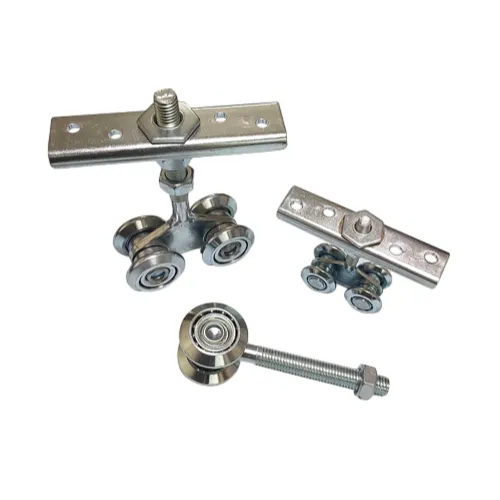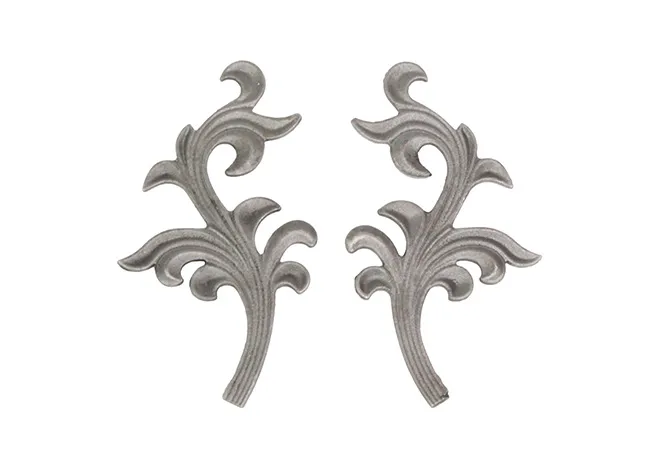
Jan . 24, 2025 03:55
Back to list
industrial pulleys for sale
Industrial pulleys are vital components in various mechanical systems, widely used across numerous sectors, including manufacturing, automotive, and shipping. When seeking industrial pulleys for sale, it is essential to understand the intricacies of their function, design, and the factors affecting their selection and application in specific industrial environments.
With the increasing integration of smart technologies in industrial systems, the development of advanced pulleys has significantly enhanced their functionality. Modern pulleys are now equipped with sensors that allow for real-time monitoring of performance metrics, such as tension, speed, and temperature, providing invaluable data for predictive maintenance. This proactive approach helps industrial players minimize downtime and optimize system efficiency. The rise of the Internet of Things (IoT) in industrial environments promises further innovations, offering smart pulley systems capable of self-diagnosis and networked operations. When searching for industrial pulleys for sale, it's crucial to source from reputable suppliers who ensure quality and conformity to international standards. Engaging with manufacturers who have a proven track record provides assurance that the pulleys are crafted to meet specific industry needs and compliance requirements. Trust in the supplier is reinforced by certification from recognized bodies, ensuring the components function as intended within their operational contexts. As part of best practice, collaborating with providers who offer technical support and consulting services can significantly enhance product integration. Such partnerships ensure not only the optimal selection of pulleys but also their seamless incorporation into existing systems, offering solutions tailored to unique industrial challenges. Experiences shared by industry leaders emphasize the competitive advantage gained by leveraging expert insights at the procurement stage. In conclusion, industrial pulleys are indispensable mechanical elements that contribute greatly to the efficient functioning of various industrial operations. Key to leveraging their full potential is a thorough understanding of their types, applications, and maintenance needs, coupled with the prudent selection of suppliers. As industries continue to evolve with technology, embracing continuous innovation will ensure that pulleys remain at the forefront of industrial mechanism efficiency.


With the increasing integration of smart technologies in industrial systems, the development of advanced pulleys has significantly enhanced their functionality. Modern pulleys are now equipped with sensors that allow for real-time monitoring of performance metrics, such as tension, speed, and temperature, providing invaluable data for predictive maintenance. This proactive approach helps industrial players minimize downtime and optimize system efficiency. The rise of the Internet of Things (IoT) in industrial environments promises further innovations, offering smart pulley systems capable of self-diagnosis and networked operations. When searching for industrial pulleys for sale, it's crucial to source from reputable suppliers who ensure quality and conformity to international standards. Engaging with manufacturers who have a proven track record provides assurance that the pulleys are crafted to meet specific industry needs and compliance requirements. Trust in the supplier is reinforced by certification from recognized bodies, ensuring the components function as intended within their operational contexts. As part of best practice, collaborating with providers who offer technical support and consulting services can significantly enhance product integration. Such partnerships ensure not only the optimal selection of pulleys but also their seamless incorporation into existing systems, offering solutions tailored to unique industrial challenges. Experiences shared by industry leaders emphasize the competitive advantage gained by leveraging expert insights at the procurement stage. In conclusion, industrial pulleys are indispensable mechanical elements that contribute greatly to the efficient functioning of various industrial operations. Key to leveraging their full potential is a thorough understanding of their types, applications, and maintenance needs, coupled with the prudent selection of suppliers. As industries continue to evolve with technology, embracing continuous innovation will ensure that pulleys remain at the forefront of industrial mechanism efficiency.
Prev:
Next:
Latest news
-
Unique Design Ideas for Wrought Iron Wall DecorNewsJul.21,2025
-
Stainless Steel Pulley for Marine ApplicationsNewsJul.21,2025
-
Safety Features in Industrial Track PulleyNewsJul.21,2025
-
Precision Tolerances for 2 Inch U Groove WheelsNewsJul.21,2025
-
Iron Fence Spears Corrosion Protection MethodsNewsJul.21,2025
-
Iron Decorative Panels for Balcony ScreensNewsJul.21,2025
-
Industrial Applications Requiring Heavy Duty PulleyNewsJul.21,2025












